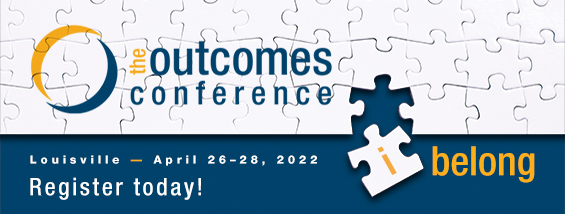
Embracing Accountability By Andrea Capuyan

Embracing Accountability for a Steward Leader
A commitment to stewarding leadership indeed stewarding our whole life requires a commitment to accountability because the heart of stewarding life is the acknowledgment of communal care. Goodness is found when we embrace our frailty and flaws…creating opportunities that impact the best interest of ourselves and others. This is what awaits us when we embrace accountability.
Serving others
A steward leader cannot operate in isolation. It is antithetical to the very concept of stewarding because this leadership paradigm is rooted in “the other.” A steward leader is appointed by others and serves on behalf of others for the best interest of others. Community, relationships, shared experiences are inherent in the life of a steward leader. Organizational leadership is often defined by hierarchical relationships within an organization. Steward leaders orient their accountability up and down the organizational hierarchical chart.
Facilitate Decisions
The popular axiom, “You don’t know what you don’t know,” aptly applies to one of the purposes of accountability. This perspective understands how feedback and external input gives a leader greater depth, awareness, and expanded insight. The wisdom of others becomes our wisdom. Accountability is a necessary building block for learning and understanding. There is a danger when systems promote a mindset, where a leader more often directs decisions, rather than facilitates decisions, where others more often rely on the leader, rather than the leader creating interdependency. The danger is the leader removes an important avenue for feedback and accountability. It is deceiving to assume that only one isolated person is the central repository of knowledge and answers. We do well to remove anything that falsely encourages infallibility, or remains blind to human error.
The Power of Teams
The authority to make decisions does not equate to one’s expertise. Fruitful organizations that embrace a robust accountability culture develop leadership teams – leadership collectives and partners not solitary individuals. Knowledge, learning, expertise, and creativity blossom in the circle of the shared experience. The starting place for accountability begins with the personal acceptance that strengths and weaknesses interlock to forge systems that are responsive, adaptive, healthy, and can stand the test of time.
Limits and Boundaries
How sad it is that too many discussions today revolve around the abuse or corruption of power. Proper stewarding of power requires a system of accountability to establish limitations and boundaries. These boundaries and controls cannot be self-created or self-imposed. Within the steward leader framework, it is assumed that boundaries are determined by the owner (external and other). These boundaries help us align with the owner’s desires. They become part of a system of calibration, so at any moment we can know if we are operating within bounds and as designed.
External Accountability
Every year our ministry undergoes an external financial review and audit. I love the experience because it’s given me a pathway for growth. And the experience has taught me more than risk management and procedural oversight. It’s taught me to embrace limitations…to embrace my humanity. Every year after the review we receive a letter that highlights areas of concern and recommendations, and every year no matter how many policies we implement two comments remain. Because I strive to be an “A+” student this became a source of irritation and frustration. I could not comprehend why the center was missing the mark. I wanted a plan to conquer these limitations. I wanted perfection. In dialogue with the auditor about this “thorn”, I came to a new understanding of the purpose of accountability. I wanted to eliminate these shortcomings, and she looked at me and said, “You can’t. You’re too small. It’s not in your capacity. AND THAT’S OKAY.” In that conversation, I learned something about constraints, limits, and being human. We are too small and so much in this life is beyond our capacity. And when we embrace accountability, we acknowledge our limitations instead of ignoring them…and we know that it is okay.
Seek Feedback
The tools and techniques to create channels for feedback and accountability are vast and varied. Performance plans, annual evaluations, or 365 surveys are helpful mechanisms to identify areas for improvement. The Johari Window is a personal favorite. These are not enough. As Christians, we understand the necessity for daily reliance and confession before God. We understand that abiding in Christ is a constant invitation for the Holy Spirit to reveal hidden motivations, to bring light to our dark places.
Trusted Partnerships
Accountability before God often is more akin to exploration and excavation. It assumes there are treasures to find. Our transformation into the likeness of Christ happens in active participation with God. Accountability assumes change…growth…potential…and active, daily participation. In partnership with God, we can look beneath the surface of our actions…beneath our striving…to our needs. Partnership, communion, and trust are required.
It would be silly to suggest that any undertaking of thoughtful examination is easy. It’s not. To be honest where there is real trust and depth of relationship, then we are apt to take more risk and expose more of our heart and soul to others and it can hurt even more. It can be hard and even jarring. I think about my “band of brothers” whose questions and prodding are often stirring and provocative. I think of one conversation which exposed my fierce commitment to independence. It left me wrestling with my tendency to avoid and hide. Embracing their questions, revealed a place of self-protection, fear, and pain. If I handle everything on my own, then I can protect myself from the risk of abandonment. If I don’t tell you about my life, then I don’t risk being hurt when it seems you don’t care about me.
This is an example of deep-seated fear and pain, which if left unexamined, will destroy. Accountability affirms that God wants to resurrect something good from our deep-seated fear and pain. Accountability affirms that we are not abandoned that there is mutual care and concern for one another so that something beautiful is discovered and embraced.
####
Andrea Leigh Capuyan is the Executive Director of Laurel Pregnancy Center. Andrea holds a Master’s degree in Organizational Leadership from York College. She is a Credentialed Christian Nonprofit Leader with Christian Leadership Alliance and a Certified Nonprofit Accounting Professional.

READ AND SIGN THE STEWARD DECLARATION
The event where a leader like you belongs!

Alliance organizations that register 4 at one time – earn a 5th registration free!
REGISTER TODAY

What is Christian Leadership Alliance?
Christian Leadership Alliance equips and unites leaders to transform the world for Christ. We are the leaders of Christ-centered organizations who are dedicated to faithful stewardship for greater kingdom impact.
Sign up for FREE blog updates.
Upcoming Events
Check back later!


